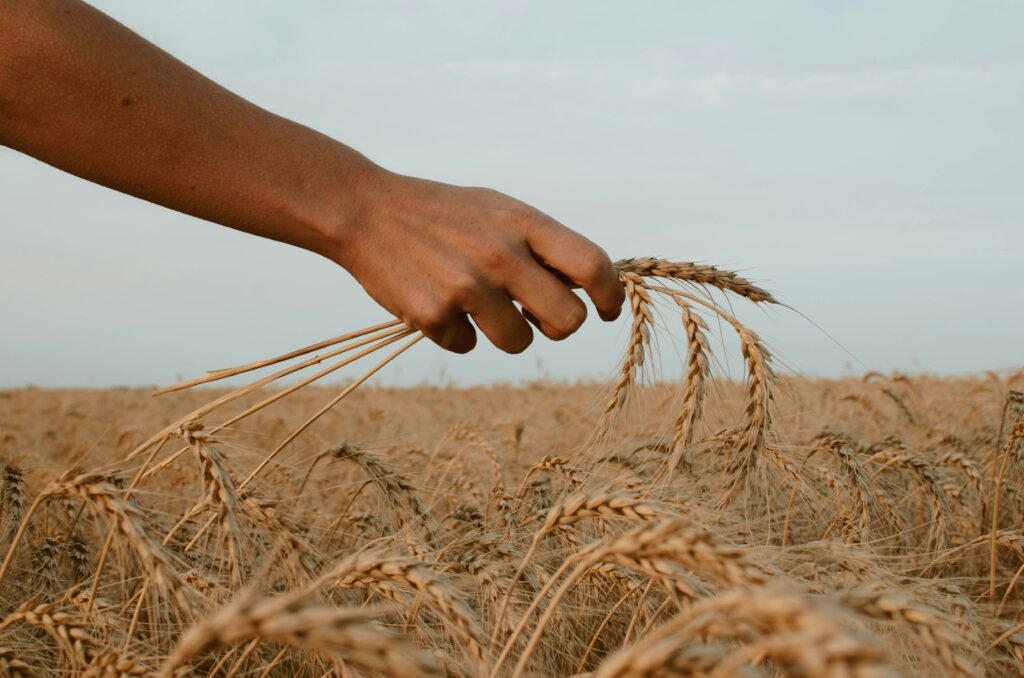
Part 1: Background | Part 2: Loyal Love | Part 3: Chance | Part 4: Abundance | Part 5: A Plan | Part 6: Approach | Part 7: Proposal
For now, Ruth will stay at the threshing floor with Boaz until daylight approaches. “Why did Boaz tell Ruth to remain with him that night [Ru 3.13], potentially compromising her virtue, rather than sending her home immediately? In view of the general lawlessness and social disruption that characterized the period of the judges (cp. Jdg 21:25), sending Ruth home alone late at night would have placed her life in danger” (ASB).
But she will leave before she can be recognized; “Boaz took precaution against scandal ([Ru] 3:14), which showed that he already was functioning as Ruth’s protector” (TCBC).
And as he sends her home at daylight, he demonstrates again his determination to function as her provider as well. Into her held-out cloak he pours “six measures” of barley grains (Ru 3.15). The six “measures” were probably 6 omers, 6/10 of an ephah (Ex 16.36) or about 25 pounds. Again, she probably carried the bundle home on her head. “If someone should spot her that morning it would appear that she had merely gotten an early start on the day’s work by transporting this sizable allotment of grain from the threshingfloor to her quarters” (Smith, OTSS).
When Ruth reports it all back to Naomi (Ru 3.16-17), the wise older woman reads Boaz’s intentions well (Ru 3.18).
So is God keeping covenant with this “empty” woman? Is He filling her again?
- He has brought her home just as food becomes abundant.
- He has led her foreign daughter to one of just a few men who are legally qualified to help her in a substantial way—and he is wealthy enough to act on the qualification, and kind enough to be willing to help.
- He has revealed Boaz to be an honorable man, and a humble one, who is surprised that the beautiful Moabite would even ask him for redemptive marriage.
Her reactions to this point tell us that she recognizes what the Lord is doing to refill her empty life.
- She knows immediately that Boaz, the owner of the “random” field, is “one of our next kinsmen” (Ru 2.20) and a man of hesed.
- She knows that Ruth will be well protected if she stays in his field for the harvest season (Ru 2.22).
- She knows that Boaz will likely respond honorably to Ruth’s plea for redemption and will not take advantage of the private meeting in the middle of the night (Ru 3.1-4).
Could there possibly be more? Of course; would God do this much and leave her still effectively empty? Certainly not.
And what of us?
Will this God honor His promises to you?
- Will He receive you in spite of your sin?
- Will He meet your physical needs?
- Will He hear your prayers?
- Will He bring you safely home?
What do you think?
Photo by Paz Arando on Unsplash

